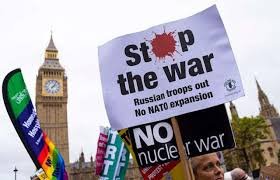
Posts Tagged ‘paz’
Totalitarianism and innocent lives
In war the first victim is the truth, a phrase attributed to Aeschylus of ancient Greece, but the tragic thing is the proportion of innocent victims, pure and elevated souls that war consumes because of the dread that totalitarian leaders have of freedom, free people and true humanism.
attributed to Aeschylus of ancient Greece, but the tragic thing is the proportion of innocent victims, pure and elevated souls that war consumes because of the dread that totalitarian leaders have of freedom, free people and true humanism.
There are countless cases, from hospitals and schools being bombed to cases of torture and cruelty to people who would bear great fruit for an elevated humanity, and that’s exactly why sick minds fight them.
I discovered among these various names, through a student, a Jewish woman named Etty (Esther) Hillesum, a Dutch daughter of Dutch father Louis Hillesum and Russian mother Rebecca Bernstein (Riva), a professor of ancient languages, from whom the interest in languages was probably born, but she goes to study Slavic languages, perhaps inspired by her mother, and then takes a master’s degree in law.
Her diaries and letters were written during the Nazi occupation of Amsterdam, and among the first books I came across were “Une vie bouleversée” (A Life Turned Upside Down) and 15 Days of Prayer with Etty Hillesum (published in Portuguese by Paulinas).
One of her phrases “inside me there is a deep well”, where inside there is sand and stones that prevent you from reaching something clearer, reveals a mystical path and the search within her to reach a deeper interiority, it is a refuge, I would say a spiritual resistance to Nazism and the climate that was generated around her.
Her relationship with psychiatrist Julius Spier (who was influenced by Karl Yung), initially for treatment and then for personal involvement, awakened her intellectuality, and in March 1941 she began to write her first of eight diaries.
In June and July 1942, he deepened his mystical dialog, writing: “God has become an interlocutor…” and it is in this context that we can talk about his writings on prayer.
He wrote in “15 Days of Prayer with Etty Hillesum”: “He took me by the hand, so to speak, and said to me: ‘That’s how you have to live’.” On the first day, he said of the second: “An hour of peace, you have to learn … I’m going to turn inward … half an hour of gymnastics and half a prayer of meditation”, the third day: ‘Hineinhorchen: listening inwardly’, listening to oneself, to others and to God.
This is how Etty’s itinerary goes: day four: “forgive my parents and their limits”, day five: “surrender to yourself and to your own guardianship”, in short, of a pure and innocent soul who indicates not just a path of repetitive and meaningless prayers, but an interior path.
One of the millions of innocent souls who died in concentration camps, she met her death in the Auschwitz camp at the young age of 29. Her writings are pure and profound, reminiscent of the purity of children and of people who live a human humanity.
Ferrière, P., Meeûs-Michiels, I. (2016) 15 dias de oração com Etty Hillesum (15 days of prays with the Etty Hillesum). Brazil, São Paulo: Paulinas editions.
Totalitarianism and political ontology
Wars always revolve around totalitarian governments, because they have a unilateral worldview, which despises the cultures and views of other peoples and thus wants to subject their peoples, who generally accept different cultures, to a single worldview.
Hannah Arendt faced up to these regimes in her 1951 book, “The Origins of Totalitarianism”. She was convinced that after the end of the Second World War, the problem didn’t end there; she spoke of hell, nightmares, Kafka’s Metamorphosis, onions and even the ugliness of an omelette, among many other things, when the stories of Auschwitz came into her hands.
In trying to describe the totalitarian experience, Arendt was faced with the dilemma of how this experience could not be explained, not by political philosophy or traditional concepts, not just by the culmination of a process of developing something from a past, but in what Heidegger called the “forgetting of being”.
I’m reminded of a striking phrase by Lygia Fagundes Telles, who died on April 16, 2022, on her 99th birthday: “There is no coherence to mystery or logic to absurdity.” Dictators and their narratives only have logic in systematic propaganda, and in a claque of other fanatics who support them and identify with them, in short, a partial narrative of reality.
This form of narrative that Arendt wrote was opposed by a contemporary like Voegelin, about whom she responded to her analysis: “I have not written a history of totalitarianism, but an analysis in historical terms of the elements that crystallized in totalitarianism” (ARENDT, 2007, p. 403).
He also wrote in “The Crisis of the Republic” that the first fundamental difference between totalitarianism and the other categories present in history lies in the fact that totalitarian terror “turns not only against its enemies, but also against its friends and defenders”; a second difference would be its radicalism, which makes it capable of eliminating not only the freedom of action of individuals, as tyrannies did through political isolation, eliminating not only opponents but also unreliable allies, there is a clear parallel in today’s war.
In her note number 81, Arendt wrote: “The total number of Russians killed during the four years of war is estimated at between 12 and 21 million. In a single year, Stalin exterminated some 8 million people in Ukraine alone (see Communism in action, U. S. Government, Washington, 1946, House Document no. 754, pp. 140-1).” Again, the similarity with the current war is no coincidence, and after Butcha then Mariupol had a similar drama to Gaza (photo), but there are only ideological partial narratives.
The last topic of Arendt’s book is: “Ideology and terror: a new form of government”. If you’re interested in avoiding totalitarianism, just read it. It’s likely that we’ll become aware of this terror and stop feeding it in our day-to-day lives.
Arendt, H. (2007) Origens do Totalitarismo. Trad. Roberto Raposo. Brazil, São Paulo: Companhia das Letras..
Believe in divine protection and do good
Despite the climate of war, we must wish for peace.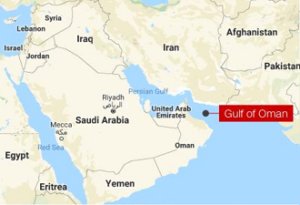 We warned in yesterday’s post that an escalation was imminent and it has happened, the climate and hate speech on both sides in the current global polarization is advancing and only those who continue to do good will be at peace.
We warned in yesterday’s post that an escalation was imminent and it has happened, the climate and hate speech on both sides in the current global polarization is advancing and only those who continue to do good will be at peace.
It seems heroic, innocent or even childish to continue to wish for and do good, but this is the only way not to fall into the trivialization of evil, polarization and inhuman discourse.
Yesterday, on Monday night in Brazil and early Tuesday morning in Israel, more than 180 missiles from Iran were launched at Israel, hypersonic missiles that traveled in 12 minutes until they hit Jewish soil; the number of victims and targets hit were not disclosed.
The involvement of the Arab world, Turkey, Lebanon and Syria have already declared their support for the attack, which had Palestinian celebrations in Gaza, takes the confrontation to a global scale, in the United States, Biden asked the forces in the area to defend Israel, which promises retaliation to Iran.
The possibility of the closure of the Gulf of Oman will affect the price of oil worldwide and, with it, the cost of products that depend on transportation and global logistics.
Only by adhering to goodness, peace and your daily life can we remain emotionally balanced and serene, even in the face of adverse circumstances, where everyone gives in to panic, hatred and the trivialization of evil.
For the philosopher Hannah Arendt, the banality of evil is the phenomenon of our character’s refusal to reflect and the tendency not to assume the consequences of actions that do not assume the consequences of evil, and thus prevent us from adhering to the good.
We only have protection in our spirit and soul when we resist the temptation to evil, what the philosopher and educator Edgar Morin also calls “resistance of the spirit” in the midst of polarization, hatred and war; by doing good actions we attract peace around us and divine protection.
Latent war and imminent danger
There is hardly any sector that has a strong enough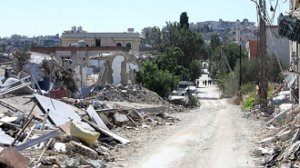 voice for the idea of peace other than the surrender of one of the sides, neither in Israel’s war against the extremist groups Hezbollah and Hamas, nor in the Ukraine-Russia war.
voice for the idea of peace other than the surrender of one of the sides, neither in Israel’s war against the extremist groups Hezbollah and Hamas, nor in the Ukraine-Russia war.
Russia’s foreign minister, Sergei Lavrov, said at the UN last Saturday (28/09) that it is a danger to try to “fight for victory against a nuclear power”, in other words, that if necessary they will use nuclear weapons, while Israel’s prime minister said that “the work is not yet finished” and “challenging days lie ahead”, these are hate speeches.
In Israel, the army has sent two brigades to the north of Israel and is deploying three reserve battalions, which seems to indicate a ground incursion into Lebanon, while Russia continues to call for more soldiers, including people from other countries who will be paid, to further expand the country’s military contingent, which all indications are that it’s not just for Ukraine.
The death of Hezbollah leader Hassan Nasrallah in fighting in southern Lebanon (photo), while Netanyahu and Joe Biden say he was responsible for the murder of a large number of Israelis and Americans, but in Iran, Yemen and Palestine he was seen as a “martyr”.
Also, the proposal by Brazil and China, which was initially supported by Russia, has been given the caveat by the Russian authorities that a Russian withdrawal from the occupied territories does not lead to peace because Russian citizens living in that region feel threatened.
In short, both in rhetoric and in actions, the imminent danger of an even greater escalation of wars does not seem to be giving way on any essential point, and this weakens the UN and the nations that want a greater balance in international relations between regimes and cultures that are different, but that can always coexist from the point of view of ordinary citizens.
The economic interests behind these wars, and those of their allies on both sides, are blatant, albeit hidden, so in this field too we need to rethink economic relations, without this implying the surrender of one of the parties.
The continuity of the discourse and the escalation of wars in these most sensitive areas is visible and not addressing these aspects hides the real possible ways out and does not favor peace.
Real danger, decisive week for peace
The death of Ibrahim Akil, one of the heads of Hezbollah’s military operations, led the organization to declare “indefinite war” against Israel.
of Hezbollah’s military operations, led the organization to declare “indefinite war” against Israel.
This Sunday they exchanged heavy fire, with Israeli warplanes carrying out the most intense bombardment in almost a year of conflict in southern Lebanon, Hezbollah for its part firing rockets towards northern Israel.
The peace talks are thus at a standstill, although US Defense Secretary Lloyd Austin exchanged six phone calls in the week with his Israeli counterpart, showing serious concern about the escalation of the conflict and calling for a diplomatic solution.
In Ukraine, the peace talks are also polarized in this respect: Brazil and China are trying to talk to Putin, while European countries and the United States are trying to reach a dialogue that is more favorable to Ukraine’s claims for peace.
What’s most frightening are the nuclear threats, which Russia always brings up and now Ukraine is saying that the Russians are also planning attacks on nuclear power plants, the effects of which would be terrifying, just think of Chernobyl, of course in this case it was an accident, but the effects should never be repeated by these two countries that came to that moment.
On April 26, 1986, reactor number 4 at the Chernobyl nuclear power plant, then a Soviet republic linked to Moscow, suffered a catastrophic meltdown that caused the government to evacuate 30 km around the plant, the area of which is uninhabitable to this day. C, 4 times higher than volcanic lava.
Sources indicate that between 2 and 50 people died in the explosion, dozens of others contracted serious illnesses caused by the radiation, some of whom died later. Between 50 and 185 million curies (unit of radiation activity) of radionuclides (radioactive forms of chemical elements) escaped into the atmosphere – several times more radioactivity than that created by the atomic bombs dropped on Hiroshima and Nagasaki in Japan (pictured is a monument to the workers who fought the Chernobyl fire).
Modern reactors incorporate more safety devices to prevent a disaster like Chernobyl, but in the event of a war “accident” control can be difficult.
The fact that there are countries committed, albeit polarized, is an encouragement and also those who see the civilizational crisis that they would unleash can serve to allow minds inflamed by hatred to cool their anger.
Towards a political ontology
Various authors talk about what power is,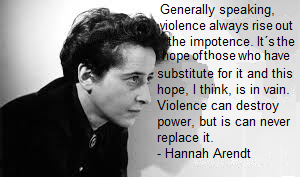 from the classic contractualists (Hobbes, Locke and Rousseau), through the modern readings of Marx, Weber, Tocqueville, Bobbio and Norbert Elias, to Byung-Chul Han (psychopolitics) and Foucault (biopolitics), but Hannah Arendt went further by envisioning political ontology and completely escapes Hegelian thinking.
from the classic contractualists (Hobbes, Locke and Rousseau), through the modern readings of Marx, Weber, Tocqueville, Bobbio and Norbert Elias, to Byung-Chul Han (psychopolitics) and Foucault (biopolitics), but Hannah Arendt went further by envisioning political ontology and completely escapes Hegelian thinking.
In her book from the late 1960s (and therefore Arendt’s Arendt’s maturity), she criticizes the “new left” which thought of Fighting a world threatened by nuclear destruction and dominated by large state, administrations and they would be responsible for violence and ultimately the essence of all power, she writes.
If we turn to discussions of the phenomenon of power, we quickly realize that there is a consensus among political theorists, from left to right, that violence is simply the most flagrant manifestation of power. ‘All politics is a struggle for power; the basic form of power is violence,’ said C. Wright Mills, echoing Max Weber’s definition of the state as ‘domination of man by man based on the means of legitimate violence, that is to say, supposedly legitimate violence. Wright Mills, echoing, as it were, Max Weber’s definition of the state as the ‘domination of man by man based on the means of legitimate, that is, supposedly legitimate, violence’”. (Arendt, 2001, p. 31)
For the author, following the Greco-Roman tradition, this concept bases power on consent and not violence, thus on a relationship of command and obedience.
The author notes that this concept is “a sad reflection of the current state of political science” (p. 36) and a natural identification of the traditional view of power and violence, since “power, vigor, force, authority and violence would be simple words to indicate the means by which man dominates man; they are taken synonymously because they have the same function” (idem) and this “virility” is often observed from Greece to the present day.
For the author, “power corresponds to the human ability not only to act, but to act in concert. Power is never the property of an individual; it belongs to a group and remains in existence only to the extent that the group remains united. When we say that someone is ‘in power’, we are really referring to the fact that they have been empowered by a certain number of people to act on their behalf” (p.36).
For the author it is necessary to review these concepts: power, vigor, force, authority and violence, since “violence would not identify any coercive act, but only that which operates, in the case of social relations, on the physical body of the opponent, killing him, violating him, in short, it seems to describe only the effective use of implements” (p. 37) and thus war.
Arendt speaks of “isonomy” where Chul Han speaks of “symmetry”, similar concepts, and so power is indeed that which “emerges wherever people unite and act in concert, but its legitimacy derives more from the initial being together than from any action that might then follow” (p. 41, with emphasis in my text).
What is needed is an action of “unity”, of “service” and, at best, as the one who serves the community and not the one who serves himself, and for this he will always need violence.
This requires an action of “unity”, of “service” and, at best, as a the best case scenario, as the one who serves the community and not the one who serves and for this you will always need violence.
ARENDT, H. (2001). Poder e violência. Brazil: Rio de Janeiro, ed. Relume Dumará.
Maximum tension between NATO and Russia
Accusations of direct aggression between the West and Russia have reached a dangerous limit.
The tensions surrounding the war in Eastern Europe have reached an all-time high. British Prime Minister Keir Starmer and US President Joe Biden are reportedly talking about allowing Kiev to use American ATACMS and British Storm Shadow long-range missiles on internal Russian targets.
On the other hand, China and Russia have held joint military exercises called “Joint SEa-2024”, which Japan and Eastern countries view with suspicion, as well as Taiwan and the islands that are conflicts between Japan and Russia (Sakhalin and Kuril Islands) and China and the Philippines (Spratlye Islands and Scarborough Atoll), but the main conflict is markets with the West.
Russia has used drones from Iran in the confrontation with Ukraine, and this strengthens the link with the Muslim world, while support for Israel from France and the US strengthens the NATO alliance.
Brazil and China had proposed a peace proposal that would “freeze the current borders” in a ceasefire, but this referred to May, now the advance of the Ukrainians into Russian territory changes this scenario, and it is not clear what the proposal actually is, but Ukrainian President Zelensky had already rejected the proposal, saying he was not consulted.
The scenario is serious because a simple attack on Russian territory with long-range missiles will be considered a NATO aggression, since Western countries have offered weapons and given a go-ahead, while NATO forces are preparing a possible retaliation.
On the Middle East front, as I explained with almost the same allies and enemies, the climate is also one of hostility and an agreement seems to be further and further away.
A senior Hamas commander, Oussama Hamdane, in an interview with AFP accused the United States of not exerting enough pressure on Israel to seek a ceasefire agreement, and claims that on the contrary “it is trying to justify the Israeli side’s evasion of any compromise”, and American political strength would be able to lead the Middle East to a hope of peace in a conflict that has gone beyond humanitarian limits.
There are still hopes, voices calling for serenity and common sense, various organizations and entities that are honestly seeking a reasonable and lasting peace.
Asymmetries, power and sociability
The Korean-German essayist Byung-Chul Han,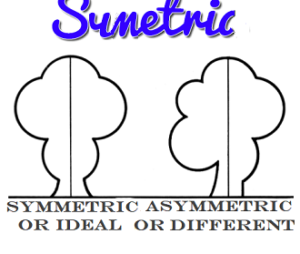 in his book In the Swarm, points out that only respect is symmetrical, the various forms of communication and power are asymmetrical, but this taken to the limit causes hatred, contempt and war.
in his book In the Swarm, points out that only respect is symmetrical, the various forms of communication and power are asymmetrical, but this taken to the limit causes hatred, contempt and war.
Jacques Rancière, who wrote “Hatred of democracy”, points out that this theme has taken on dramatic contours today, but already exists in literature: “The author points out that rejection of democracy is nothing new, but it has new contours:
Its spokespeople inhabit all the countries that declare themselves not only democratic states, but democracy tout court. None of them claim a more real democracy. On the contrary, they all say that it is already too real. None complain about the institutions that claim to embody the power of the people, nor do they propose measures to restrict that power.
Rereading the literature, he recalls authors who defended it: “The mechanics of the institutions that enchanted the contemporaries of Montesquieu, Madison and Tocqueville do not interest them. They complained about the people and their customs, not the institutions of their power. For them, democracy is not a corrupted form of government, but a crisis of civilization that affects society and the state through it,” and so we don’t speak of a ‘crisis of civilization’ at random.
The discussion of the media influencing politics has been around for centuries, as has the fact that defaming opponents through situations that are not always true or even out of context is a common practice to try to impose an opinion in an asymmetrical way.
The fact is that we now have a more powerful medium that can potentiate these falsehoods and the new media are not just control algorithms or efficient Artificial Intelligence mechanisms, now a new technological approach, the fact is that we have to seek a balance, a symmetry from personal relationships to power.
You can’t apply laws unilaterally, or even make them to suit political situations, they must apply to everyone and if they change they must follow a rite and the appropriate institutions for this, trampling on powers, anticipating processes or making summary rites are abuses of power.
This is how we start with respect for opinion, for dialogue, for what is different, and arrive at the exercise of power with moderation and the utmost fairness, even if opposing forces confront the contradictory discourse, this must be done within the framework of legality and legitimacy.
On a personal level, overcoming stalemates, raids and personal differences with parsimony and respect helps to balance social relations, even if it often borders on offense on one side.
It’s not a heroic attitude, it’s a defense of coexistence, tolerance and social peace.
Rancieré, J. (2007). Hatred of Democracy. USA, NY: ed. Verso.
Joy in the midst of crisis
It´s possible to maintain joy in the midst of crisis, economic difficulties and wars that threaten us? This is not about naivety or mere alienation, others prefer to think about maintaining their essential assets: food, health and safe housing.
economic difficulties and wars that threaten us? This is not about naivety or mere alienation, others prefer to think about maintaining their essential assets: food, health and safe housing.
Byung-Chul theorizes that despite the “difference” between Derridá and Heidegger (see our posts about Heidegger´s heart book) there is a structural affinity in their vision of mourning, which is characterized by the renunciation of the subject’s autonomy in Derrida: “No matter how narcissistic our subjective speculation continues to be, , it can no longer close itself to this gaze, before which we ourselves show ourselves the moment we convert it into our mourning or we can give up on it [faire de lui notre dueil], mourning, making ourselves mourn for ourselves, I mean, I mourn the loss of our autonomy, for everything that made us the measure of ourselves” (Han, p. 430 citing Derridá’s text “Krafter der Trauer”, strengthening of pain), this That is, they both have in common a vision of renouncing the autonomy of the subject, the “I” of idealism.
Here the important thing is not to let mourning work (let us remember the concept already seen in the posts about “work mourning”) it is replaced in Derridá by a game of mourning: “however, the happier the joy, the purer the sadness that sleeps in it. The deeper the sadness, the more it calls us to joy…” (Han, pg. 430-431), but Heidegger’s mourning, explains Han, does not kill death, trying to kill it results in something even worse: “ wanting to resurrect, violently and actively surpassing the limit of death would only drag them (the gods) into a false and non-divine proximity and would bring death instead of our life” (Han, pg. 431-432 quoting Heidegger).
Heidegger explains that it is “not a symptom that can be eliminated by psychoeconomic accounting. He does not have a deficient trait that involves work (of mourning).
This “withdrawn” or “saved” for which Heidegger’s “holy and mourning” heart beats is not subject to economics, this “saved” cannot be spent or capitalized, it is therefore that which is and characterizes renunciation, Han does not exemplifies, but we can think of humanitarian aid in disasters and wars, as it will characterize the identity of renunciation and gratitude as conceivable outside of economics, using Heideggerian terms “grievously bear the need to renounce” and promises the “unthinkable donation”.
A profound and wise phrase by Heidegger says, renunciation is the “highest form of possession”, it seems contrary, but we only really have what we can give because otherwise it is a commodity of exchange, and even more so renunciation becomes gratitude and “ duty of gratitude”, this pain increases and becomes joy: “the deeper the sadness, the more the joy that rests in it calls us”. (pg. 433), but it does not even become sublimation, which forces us to “work”, as it is the “inhibition of all income” and the “awareness of the emptiness and poverty of the world”.
Praise of misery one might think, is not a praise of moderate and continuous joy, different from the euphoria and ecstasy that is followed by depression, “the lack of the divine brings about mourning, goes back to an obstinate forgetfulness of being, in which Heidegger inscribes the divine” (Han, p. 433-434), but it is certainly not yet the biblical divine, but surrounds it.
The reward and joy of the Divine inscribed in the being, is that which renounces and gives, but knows that there will be a reward of receiving a hundred times more, not in goods, but in joy.
Han, Byung-Chul (2023) Coração de Heidegger: sobre o conceito de tonalidade afetiva em Martin Heidegger (Heidegger’s heart: on the concept of affective tonality in Martin Heidegger). Transl. Rafael Rodrigues Garcia, Milton Camargo Mota. Brazil, Petrópolis: Vozes.
What is the crisis of idealism?
The scenario of the world’s involvement in wars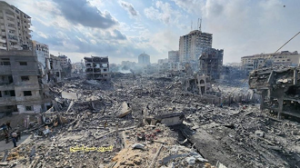 is a difficult one. We need to understand what lies behind it, as it is a daily confrontation between minds, souls and economic interests that fight each other on a daily basis.
is a difficult one. We need to understand what lies behind it, as it is a daily confrontation between minds, souls and economic interests that fight each other on a daily basis.
In essence, they are defending a “free society” or a “society liberated from capitalism” without analyzing the origins of these thoughts and models in depth.
They reflect the crisis of contemporary thought, which is not only philosophical, religious or political, but also a loss of the foundations of what is human, nature and science itself.
Sloterdijk’s vision, expressed in his spherology in volume I Bubbles, shows that both the onto and anthropological phenomena are more essential than the relationship between subject and object, because they precede the spatial experience of Being-in (even if it’s not exactly what Heideger called In-Sein), which is the main criticism of contemporary idealism.
In the field of religion (and this can be extended to thought), the essayist Byung-Chul Han reflects that the “pathos of action blocks access to religion. Action is not part of the religious experience. In On Religion, Scheleiermacher elevates intuition to the essence of religion and contrasts it with action.” (Han, 2023, p. 154) It is worth remembering that Scheleiermacher reintroduced hermeneutics as a method and influenced modern phenomenology.
Scheleiermacher said verbatim (quoted by Han in Vita Contemplativa) in On Religion: “Its essence is neither thinking nor acting, but intuition and feeling. It wants to intuit the universe, […] it wants to listen to it devoutly, it wants to apprehend it in its childlike passivity and be filled by its immediate influences” (apud Han, p. 154), and also affirms ‘all activity in an awe-inspiring intuition of the infinite’ and says Han: ”Whoever acts has a goal before his eyes and loses sight of the whole. And thinking directs its attention to only one object. Only intuition and feeling have access to the universe, namely the whole of being” (Han, 154, idem).
This disregard for the whole being, taking only its particular social aspects, such as economic, ethnic or even religious aspects, is what Heidegger called the forgetting of Being, even though the Greeks worked on ontological aspects.
However, there are two convictions and different visions of idealism, or state idealism in two proposals, capitalism and socialism, not forgetting that Marx is also a Hegelian, although his group has been named “new Hegelians”.
And the crisis of democracy is a crisis of the state, a model that has been corrupted by megalopaths and dictators who know little or nothing about the interests and lives of ordinary people.
The current war is the crisis of this model, both willing to prove their superiority by imposing war, as the uruguyan writer Eduardo Galeano said: “No war has the honesty to confess, I kill to steal” and even more obviously they kill innocent civilians.


